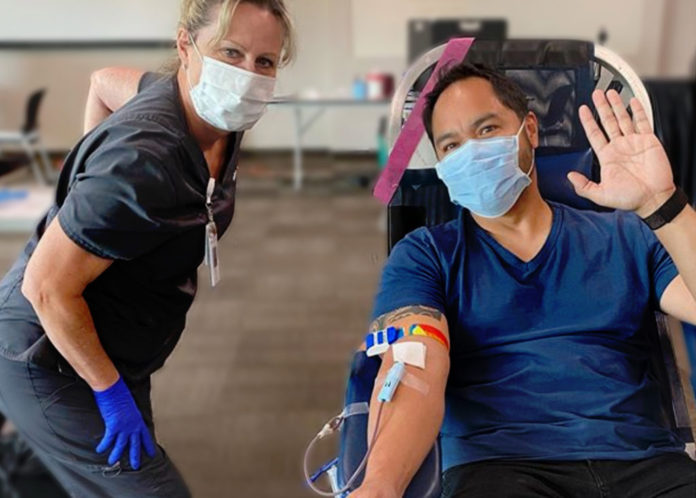
In 1983, the FDA asked men who had multiple male sexual partners to refrain from donating blood. In 1986, the agency banned any man who had had sex with another man in the last 10 years. It was the height of the HIV-AIDS crisis, and in a time when the leader of the free world wouldn’t even utter the acronym “AIDS,” conflating homophobia with public policy was the norm.
Those restrictions, unfortunately, stuck around for a long time, despite the fact that the United States has since gained access to advanced testing that can identify HIV in the blood within two weeks of exposure with great precision. It wasn’t until 2015 that the FDA decreased donor restrictions to exclude only those who had had gay sex within the last year. Last April, the FDA lowered the so-called MSM ban, or “men who have sex with men” ban, to three months. Many LGBTQ+ men and allies say the ban is still discriminatory because it does not ask similar questions of other genders or heterosexual men.
Also last April, the FDA announced they would be commencing a pilot study to evaluate alternative screening questions that indicate risk. Now, the Assessing Donor Variability and New Concepts in Eligibility study, or the ADVANCE (Assessing Donor Variability And New Concepts in Eligibility) study, is recruiting participants between the ages of 18 and 30 who have had gay sex in the last three months in eight major cities, including San Francisco. The pilot study is being conducted in collaboration with the three of the nation’s largest blood centers, Vitalant, OneBlood, and the American Red Cross, with funding from the FDA. The ADVANCE study’s local partner, Project More, is helping spread the word and gather 250 local participants for the 2,000-person study.
“Especially now, as we slowly come out of the pandemic, we can see that blood supply is really important,” says Bryan Aubineau, Chief Brand Officer for Project More. “We hope that the information from this study can help determine the right questions and can help change the sole criteria from being, essentially, abstinence for at least three months.”
But not everyone supports the pilot study, given other countries like Italy and Spain already institute risk-based deferrals that focus on factors like whether the person is monogamous, uses condoms, or is aware of their and their partner’s HIV status. In fact, when the FDA announced the study last April, LGBTQ+ advocacy organization GLAAD (an organization founded in response to homophobic coverage of the HIV/AIDS crisis) issued a statement condemning it. “The FDA is placing American lives on the line as they debate stigma, not science,” said GLAAD CEO and President Sarah Kate Ellis. “During the current crisis, the FDA is wasting time and money on a pilot study when all the scientific research and medical authorities plainly state that gay and bi men should not be restricted from donating blood.”
That opposition, however, is not absolute. Though critics believe the pilot study is only delaying progress, they concede that the FDA is at least making small steps towards progress. Project More, on the other hand, takes a much more optimistic outlook, saying that though “progress is moving more slowly than many of us hoped…this new Advance study marks, at the very least, an acknowledgement of LGBTQ+ concerns,” in a press release.
“The devils in the details,” says Brian Custer, Vice President of Research and Scientific Programs and the Director of Epidemiology and Policy Science at Vitalant. He’s critiqued the MSM ban publicly in the past, but still thinks the pilot study is necessary to change the FDA’s protocols. If the FDA changed their criteria and found an increased quantity of HIV in blood banks, for example — as happened in Spain and Italy — gay and bisexual men might again find themselves blamed. “I think when it’s said and done, the evidence can support just what I said: that we can get rid of [the MSM ban]. But it’s better to have the evidence that we can stand on.”
To enroll in the study, participants should make an appointment at the Vitalant Irwin Donation Center by visiting the ADVANCE website. Appointments are available Tuesday through Friday until May 27th.








